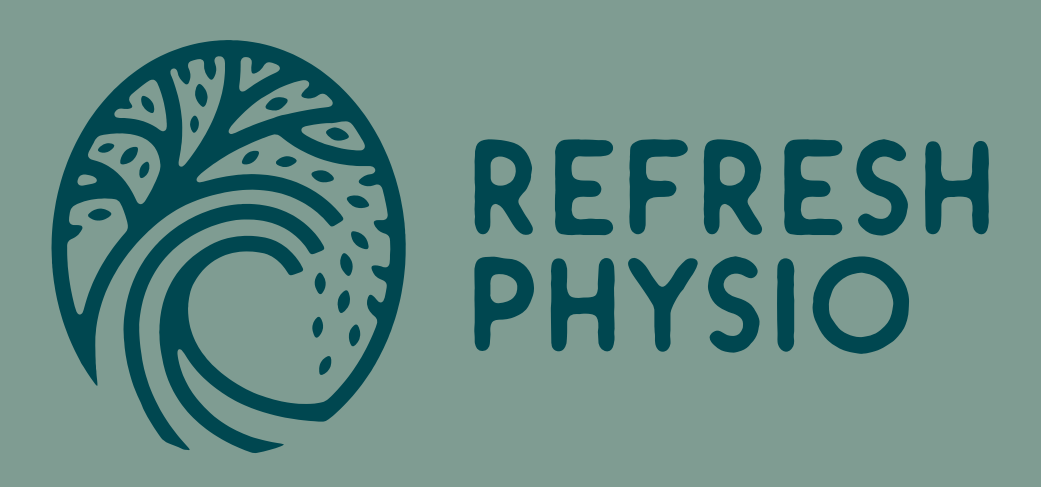Pelvic Pain - The Silent Epidemic
Did you know an estimated 20% of women suffer persistent pelvic pain (PPP), getting in the way of their everyday lifestyle?
So reflecting on that, this statistic demonstrates that 1 in 5 women will need to find help to perform their work or home duties, cancel their exercise class or miss their sporting practice/game due to their pelvic pain. That is a huge amount of women. What a massive (and painful) drag that must be.
*
Pelvic pain is multifactorial, however common sources of the pain can come from
1. Gynecological (Endometriosis, Adenomyosis, fibroids, menstrual pain)
2. Gastrointestinal (IBS, chronic constipation)
3. Sexual dysfunction (provoked vestibulodynia, vaginismus)
4. Musculoskeletal issues (SIJ dysfunction, Pubic Symphysis Pain, overactive pelvic floor, pelvic floor muscle spasms )
5. Urological (Bladder Pain Syndrome, Urinary Tract Infections)
There is still a sense of embarrassment with pain within the pelvic region, which in my opinion is why it is not addressed well and gets swept under the carpet. I know that for most women there is a sense of “pelvic pain is just a part of women hood”.
We have normalised period pain, pain after birth, UTI’s and IBS... but why should it be normal? Sadly the estimated time from first pain experience in endometriosis to diagnosis is 7 years. Is it a lack of knowledge of our bodies or is it poor care from your health provider? A bit of column A and a bit of Column B. Optimistically, there has been a lot more traction in the media of women's health, especially that of pelvic pain.
But what is this “Persistent Pelvic Pain”?
Persistent pain is classified as any pain that has been experienced in the body for 6 months or more. Therefore PPP is any pain between the abdomen, lower back and pelvis. As physios, pain is the most common problem we see on a daily basis. We know that pain is multifactorial, however when the pain has gone over the fence from acute to chronic we know that there are changes with how that pain is experienced within the brain, almost making it harder to diagnosis from your health care professional as you can sometimes feel “it is all in my head”. What we do know is women suffering from PPP are more likely than their pan free peers to suffer from
- Sexual pain (5 x more likely)
- Endometriosis or ovarian cysts (3x more likely)
- Urinary urgency and/ or frequency
- Irritable bowel disorders
Physiotherapy for Pelvic Pain
What we definitely know about Pelvic Pain is that it will always be multifactorial. There is no point going to a health professional who will not deal with the disease/ condition holistically.
Us physiotherapists are fantastic at doing just that.
Usually we will start with a conversation to gather information about the patterns pelvic pain may have. Then working towards your goals, be it to run 10 km pain free, having pain free sex, decrease and eliminate your sick days used for your monthly period pain, stop painful bloating at the end of the day or wee without pain - The sky's the limit!
With loads of education on your pains behavior and how it works in your brain, we slowly work with you using a number of strategies. These include hands on treatment, exercise prescription for strength and lengthening muscles, devices to help stretch or activate the pelvic floor, dry needling and biofeedback devices. Also education on diet and lifestyle on what could be triggering these flare ups can be extremely useful.
Finally incorporating all the education and active treatment, we give you strategies to go off independently and incorporate them into everyday life, in order for you to take control of the pain experience. Once you feel in control the element of surprise goes away, decreasing the anxiety you may have towards the pain experience itself. This will increase your tolerance and restore pain free function.
The goal of physiotherapy for pelvic pain is always effective relief and long term self-management.
Restoring function, confidence and quality of life is our focus.
If you have any questions or symptoms of pelvic pain, book in with Issy, our Pelvic Health Physiotherapist.
